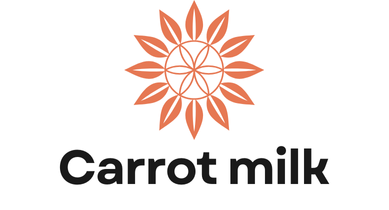What Are the Latest Trends in Global Politics in 2025?
As we step into 2025, global politics is anything but predictable. Recent data reveals that nearly 67% of countries are adapting their diplomatic strategies in response to shifting alliances and emerging powers (Source: International Affairs Review, 2024). This evolving landscape invites us to ask: how will these changes shape the world’s future, and what role will your country play in this complex dance of influence?
Key Shifts Changing the International Political Landscape Today
In recent years, the global political landscape has been reshaped by significant power shifts, reflecting a world that refuses to stay still. Traditional alliances are evolving as emerging countries claim a more prominent role on the stage, challenging long-standing hegemonies. This dynamic mirrors a game where the rules are rewritten mid-play, keeping diplomats and analysts alike on their toes.
Technology is another player changing the scene, with digital diplomacy and cyber influence redefining how countries interact. International organizations, once seen as mere bystanders, are finding new ways to exert influence—often acting as crucial mediators or platforms for collaboration amidst growing complexities. This evolving framework highlights the delicate balance between national interests and collective global action, reminding us that the political landscape is as much about connection as competition.
How Emerging Political Movements Shape Worldwide Policies
In today’s interconnected world, political movements born from grassroots activism swiftly influence policies far beyond their origins. Take digital rights advocacy, for example. From Europe to North America, activists championing online privacy and freedom have spurred lawmakers to rethink data protection laws, reflecting society’s growing concern over surveillance and misuse of personal information.
Meanwhile, diverse social transformation movements push governments to adopt more inclusive policies. Whether it’s climate justice campaigns or calls for gender equality, these collective voices challenge traditional political dynamics. What’s fascinating is how cooperation between activists, politicians, and civil society creates new pathways for change, often blurring the lines between local demands and global agendas.
These emerging forces remind us that policy-making is no longer confined to closed chambers. Instead, it thrives on the energy of diverse stakeholders striving together, shaping a political landscape that’s more responsive and reflective of today’s complex world.
The Countries Currently Driving Global Political Trends
When it comes to shaping political currents on the world stage, a handful of countries stand out as true trendsetters. The United States, with its enduring influence, continues to steer discussions on democracy and global security, even as China’s rise challenges established norms through bold economic initiatives and digital expansion. Europe remains a key player, navigating its own internal shifts while influencing policies on climate and trade.
Across these powerhouses, recent data reveal how leadership styles vary—from the calculated pragmatism seen in Germany’s approach to European unity to the more assertive tactics employed by Russia in regional conflicts. Anecdotes abound: take for instance a recent summit where surprising alliances formed, signaling changing priorities and emerging political coalitions. These dynamics are not only about borders but also reflect transformation numérique, highlighting how technology deeply intertwines with politics today. Watching these nations interact offers a front-row seat to the evolving choreography of global power.
Impacts of Today’s Global Political Trends on Everyday Life
Global politics might seem like a distant game of chess between capitals, but its moves ripple into our daily routines in surprising ways. From the phone in your pocket to the rights you enjoy at work, the ever-shifting landscape of international relations subtly shapes what you see, do, and expect.
Take social rights, for example: growing cooperation between nations often sparks new agreements that protect workers or promote equality. Meanwhile, political decisions affect technological innovation—think data privacy laws born from cross-border dialogues or green energy initiatives driven by climate accords. These changes aren’t just abstract policies; they influence the apps you use, the laws safeguarding your freedoms, and even the products on your supermarket shelf.
How to Stay Updated on the Evolution of Global Political Trends
Keeping up with global political changes can feel like chasing a moving target. But with the right tools and sources, you can stay informed without getting lost in the noise.
- Follow trusted news outlets like BBC World News, Al Jazeera, and Reuters. These provide balanced reporting and up-to-date coverage from multiple perspectives.
- Leverage digital tools such as news aggregators (Google News, Flipboard) that tailor stories based on your interests, helping you catch emerging political trends worldwide.
- Engage with expert analyses on platforms like Foreign Affairs or podcasts where scholars and journalists break down complex developments into digestible insights.
- Use social media wisely to follow credible journalists and international organizations, but always verify information to avoid misleading narratives.
- Subscribe to newsletters from respected think tanks or media outlets for curated updates delivered directly to your inbox, saving you time and offering deeper context.
By combining these approaches, you’ll gain a clearer understanding of ever-shifting political landscapes—and maybe even impress friends at your next dinner party.
Your Questions About Current Global Political Trends Answered
What are the most important trends in global politics today?
Rising digital diplomacy, shifting alliances, and an increased focus on climate policies dominate global politics. Countries engage more deeply with diverse stakeholders to navigate these complex changes while balancing national interests with global cooperation.
How are international political dynamics changing in 2024?
2024 sees power centers shifting with emerging economies gaining influence. There’s more multipolarity, heightened geopolitical competition, and stronger collaboration on transnational issues like cybersecurity and sustainable development.
Which countries are influencing global political trends right now?
The U.S., China, and the EU remain key players. Rising voices like India, Brazil, and several African nations also shape politics, offering new perspectives and challenging established norms.
What impact do global political trends have on everyday life?
These trends affect trade, technology access, and climate action, influencing jobs, privacy, and even the products you buy. Political shifts can shape economic stability and social policies worldwide.
How can I stay informed about the latest developments in world politics?
Following a reliable generalist news media like ours offers balanced insights, diverse analysis, and updates. Engaging with multiple sources sharpens understanding and keeps you ahead in today’s fast-paced political landscape.









